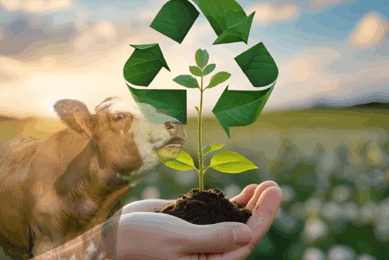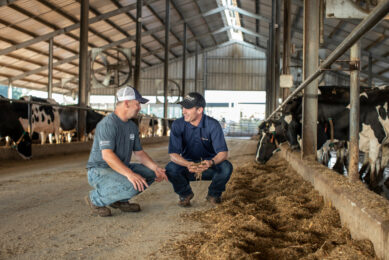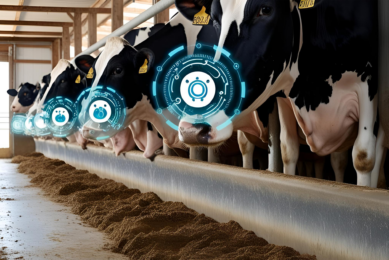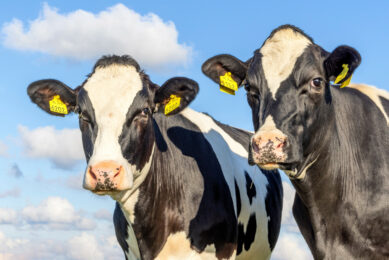Cows enter world’s first floating farm
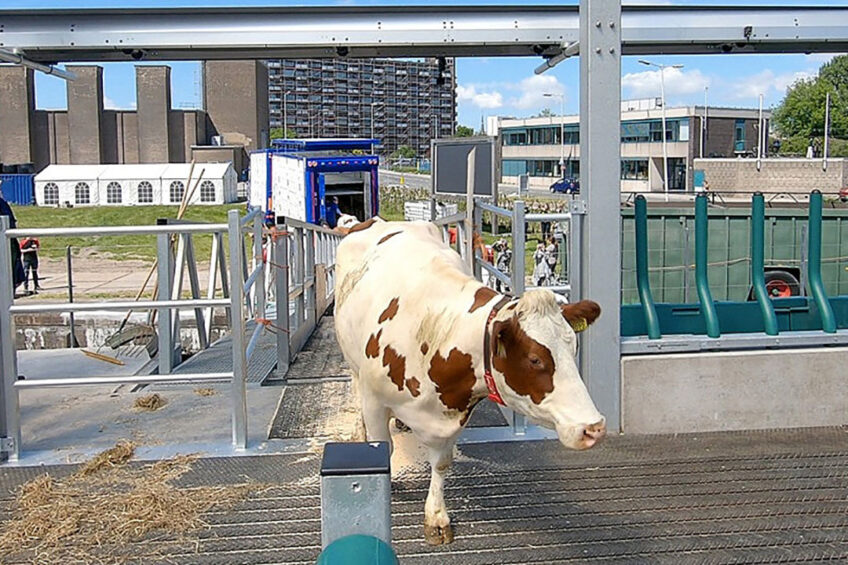
History has been made as 32 cows have just entered the word’s first floating dairy farm based in the port at Rotterdam in the Netherlands.
Years of development and construction have finally come to the last hurdle when the Montbelliarde cows can find their sea legs and get accustomed to their new home. And what a luxury home it is, with robotic milking, a slurry robot, spacious cubicles, automatic belt feeder and a rubber walkway. A nearby field offers the cows a place for some green exercise if they feel up to it.

Manure is re-used locally
Although the farm is a working business that will sell milk to consumers via a vending machine, it has also been designed to be an educational tool to highlight the path milk takes in its production. Thousands of visitors are expected to come visit the farm from rural and urban areas alike to see the cows in their relaxed atmosphere. While the fresh milk will be sold, the cow manure will be separated and re-used as an organic and rich nutrient for Rotterdam’s plants, gardens and parks. The designers of the floating farm have made it self-sufficient and circular by including floating solar panels which provide all the energy needs. Rainwater is captured on the roof and then purified for drinking and most of the cattle feed comes from the city.
Highlighting the increasing scarcity of farmland
The menu for the cows consists of brewers’ grains, bran, potato scrapings and grass from playing fields and golf courses in the city. The cows process these ‘waste products’ into healthy dairy products for local residents. Upgrading waste products like grass into edible nutrients such as proteins is generally considered a very efficient condition for sustainable food production. The dairy products are for sale at the floating farm and will soon be stocked in Lidl stores in and around Rotterdam. From the top floor of the floating farm, the cows have a view of what is still a busy port but which will be transformed into a residential and working area in 10 or 15 years’ time. Those behind the floating farm say it was developed to highlight the increasing scarcity of farmland on the one hand and the growing world population on the other. This results in a search for new ways to be able to continue feeding the global population in the future. Climate issues are another reason. Rotterdam is situated in a very water-sensitive delta and like so many cities it has to cope with water discharge from the rivers, rising sea levels and heavier rainfall. This can all be managed in various ways, one of which is floating buildings. By building a floating farm, the developers say, food production can continue during flooding.

Next: floating chickens and veggies
The brains behind this bold move are from Courage, the innovation institute of the Dutch agriculture and dairy sector; Uit Je Eigen Stad, the national frontrunner on city farming and Beladon, a leading Dutch company on floating concepts.
While there are a number of partners supporting the project the day to day running of the farm is the responsibility of 26 year old Albert Boersen, the first floating dairy farmer in the world. MrBoersen has grown up with cows in the Friesland region of the Netherlands and studied agribusiness at university. It is anticipated the floating farm will cost in the region of £2.26 million (€ 2.6 million, US$ 2.94 million). Plans are now on the table for a floating chicken farm and a floating greenhouse where vegetables and herbs can be produced, all aimed at producing fresh food in a transparent way close to the consumer.
Join 13,000+ subscribers
Subscribe to our newsletter to stay updated about all the need-to-know content in the dairy sector, two times a week.



